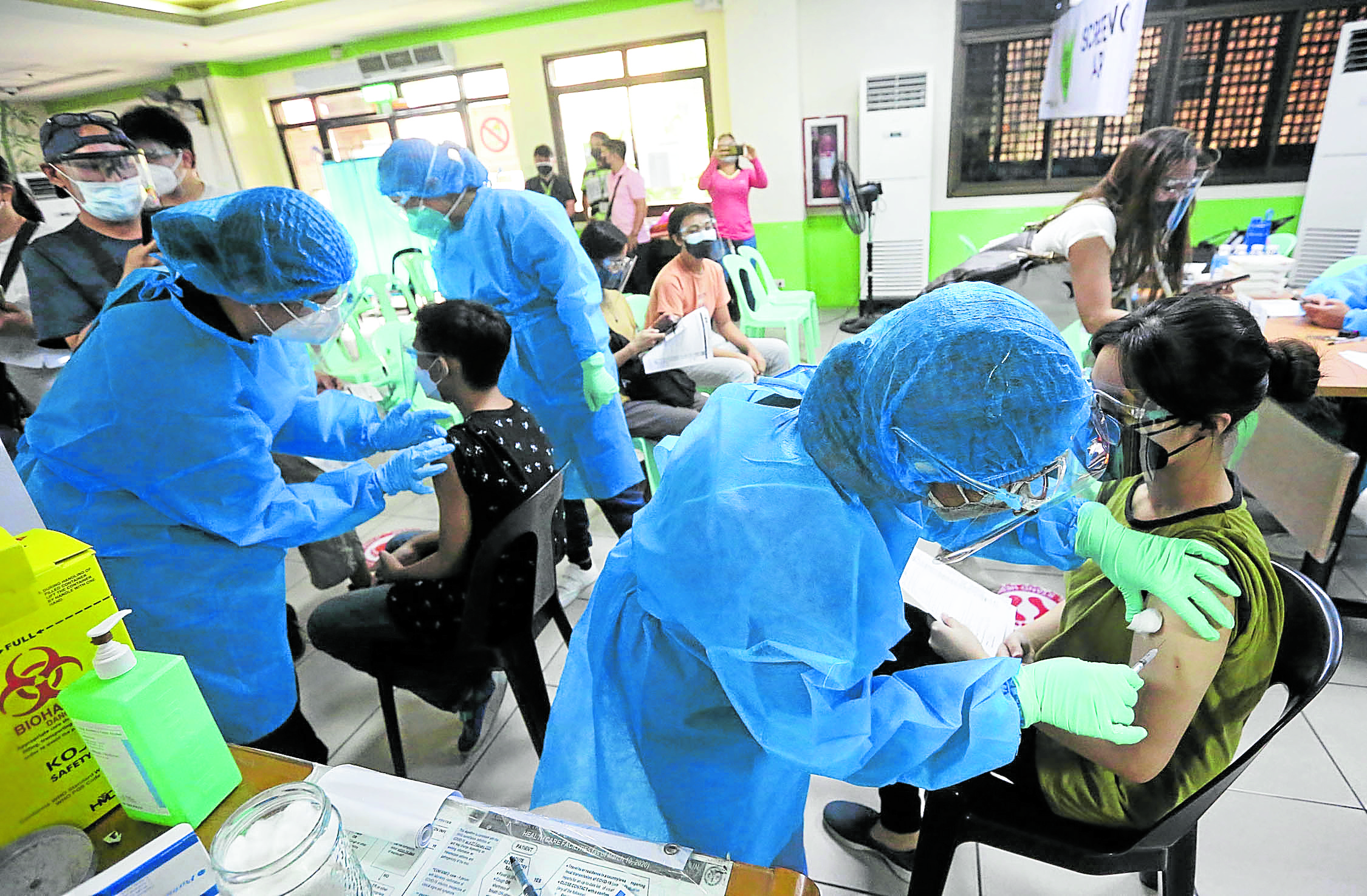Teen inoculations exceed 20,000; only 25 adverse incidents

PROTECTING THE YOUNG Teenagers accompanied by their parents receive their first COVID-19 shot at Las Piñas General Hospital, as the vaccination rollout for the 12 to 17 age group continues, with priority given to minors with comorbidities. —MARIANNE BERMUDEZ/INQUIRER FILE PHOTO
The government has inoculated 23,727 teenagers with comorbidities over the past two weeks in Metro Manila, with only 25 reports of mostly minor adverse reactions, according to the Department of Health.
Health Undersecretary Myrna Cabotaje said that of the total 25 adverse events recorded, only three cases were serious, including a severe allergic reaction, or anaphylaxis, as well as cases that needed hospitalization.
“The other adverse reactions were mild allergy, rashes, and pain at the injection site. There were also immunization-related anxiety cases, where they usually faint or have heart palpitations,” Cabotaje said at a press briefing.
On Nov. 3, the government will expand inoculations to all adolescents without comorbidities age 12 to 17 in Metro Manila. A full scale implementation for the rest of the regions will follow on Nov. 5.
But Cabotaje clarified that some areas outside Metro Manila may start inoculating teens without comorbidities on Nov. 3 “based on the readiness” of their respective local government units (LGU).
Article continues after this advertisementThe only difference between the current vaccination of minors and the nationwide rollout next week, Cabotaje said, was that medical certificates would not be required among adolescents with no comorbidities.
Article continues after this advertisementVaccine czar Carlito Galvez Jr. earlier said that the government aimed to inoculate 50 million to 70 million minors in the said age group by the end of the year, as face-to-face classes are set to reopen.
Galvez also said that the immunization drive among minors would allow them to have “leeway to move around and play,” as restricted movement during the pandemic affected their mental health.
Also on Thursday, the Philippine National Police said it would help secure the government’s vaccination drive for all minors nationwide, which is expected to start next week.
Police on standby
PNP chief Gen. Guillermo Eleazar ordered on Thursday all police units in the country to get in touch with their respective LGUs to craft security plans with the aim of enforcing minimum public health standards and ensuring the safety of minors and their parents.
Eleazar said police assets were ready to assist in the national vaccination program in any capacity, including disseminating information and awareness on COVID-19 vaccines.
“The PNP Medical Reserve Force is on standby and is ready for deployment to help facilitate the inoculation process should our LGUs require assistance in their local vaccination programs,” he added.
For more news about the novel coronavirus click here.
What you need to know about Coronavirus.
For more information on COVID-19, call the DOH Hotline: (02) 86517800 local 1149/1150.
The Inquirer Foundation supports our healthcare frontliners and is still accepting cash donations to be deposited at Banco de Oro (BDO) current account #007960018860 or donate through PayMaya using this link.